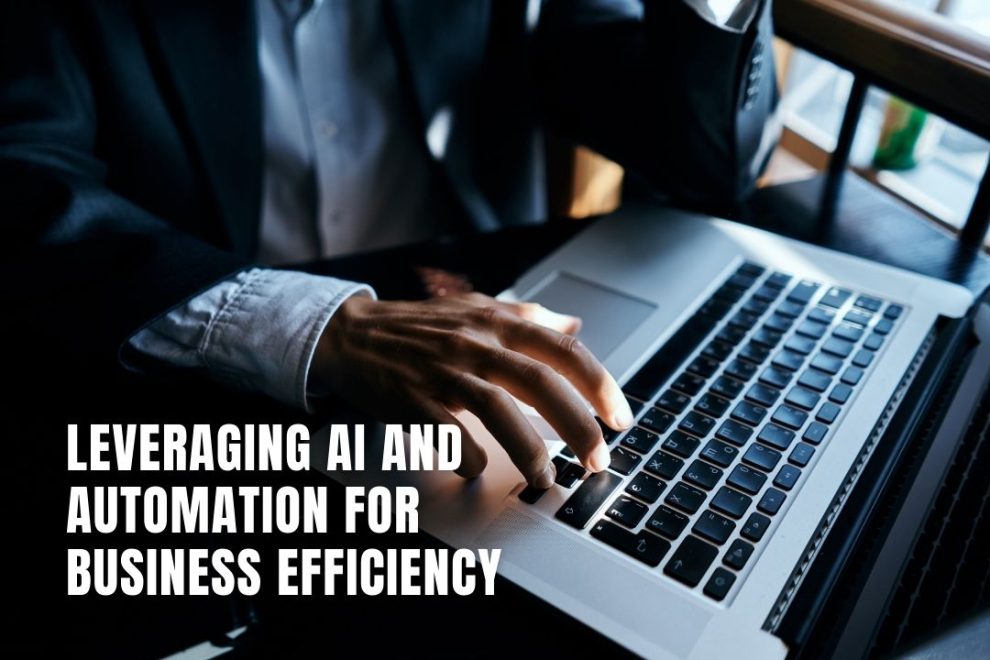In today’s rapidly evolving business landscape, leveraging emerging technologies like artificial intelligence (AI) is key to staying competitive. With the ability to automate complex tasks, analyze massive datasets, and drive optimization, AI can help boost efficiency across all aspects of your operations.
But where do you start? This comprehensive guide covers the key areas where AI can make an impact and provides tips for successfully integrating AI solutions to transform your business.
The Game-Changing Power of AI
AI refers to computer systems that can perform tasks normally requiring human intelligence, such as visual perception, speech recognition, and decision making. Unlike traditional software that relies on rules-based programming, AI leverages machine learning algorithms that continuously improve through experience.
This enables AI systems to handle ambiguous, unpredictable situations using an approach similar to human learning. As AI algorithms process more data, their models evolve to deliver faster, more accurate insights and decisions over time.
When implemented strategically, AI can revolutionize business operations in the following impactful ways:
1. Automating Manual Tasks
AI can replicate human actions for a range of manual, repetitive tasks like data entry, customer service inquiries, administrative work and more. This saves substantial time and overhead costs by eliminating the need to hire people who focus solely on handling high-volume, mundane responsibilities.
Other key benefits include:
- Freeing up employees to dedicated their energy towards high-value strategic initiatives
- Minimizing errors and ensuring consistency by reducing reliance on human effort
- Accelerating workflows and processes to boost overall productivity
2. Enhancing Data-Driven Decisions
AI systems can rapidly synthesize insights from massive, complex datasets spanning across sales numbers, customer behaviors, market trends, supply chain factors and more. This empowers leaders to make well-informed, opportune decisions backed by hard data-driven evidence.
Notable capabilities include:
- Uncovering hidden patterns and non-obvious correlations
- Forecasting future outcomes like demand fluctuations and emerging market shifts
- Tailoring products, promotions and experiences to individual customer preferences
3. Optimizing Operations
Sophisticated AI algorithms help optimize resource allocation, streamline production workflows, boost quality assurance and more – creating substantial cost and time efficiencies across operations.
Impact areas encompass:
- Predictive inventory optimization
- Automated scheduling and preventative equipment maintenance
- Anomaly detection for production line quality control
- Personalizing manufacturing parameters for small-batch custom orders
4. Elevating Customer Engagement
AI-powered solutions like chatbots enable brands to provide customers with responsive, personalized and consistent experiences across communication channels. This drives satisfaction, loyalty and retention over the long run.
Notable use cases include:
- 24/7 automated support via conversational AI chatbots
- Proactively addressing concerns through predictive analytics
- Crafting tailored offers and recommendations grounded in data-driven customer insights
Tips for Integrating AI Solutions
Here are some best practices to consider when strategically adopting AI across your business functions and processes:
Understand AI’s Possibilities and Limitations
While AI unlocks transformative potential, it’s important to set realistic expectations by understanding technology limitations. AI excels at replicating narrow tasks but still lacks generalized reasoning capabilities in many scenarios.
Keep your initiatives focused on automating specialized workflows rather than replacing entire human roles. Provide ample training and upskilling opportunities to help staff transition towards more strategic responsibilities.
Align AI Adoption with Business Priorities
Look inward at your existing operations to identity high-impact areas for automation and efficiency gains. Set tangible KPIs and metrics for success upfront. This ensures AI projects tangibly link back to serving critical business needs rather than existing in isolation.
Start Small, Learn and Iterate
Commence with limited trial deployments to establish proof of concept and demonstrate quick wins. Many companies fail by overinvesting in large-scale AI rollouts before validating product-market fit. Adopt an agile, iterative approach instead for smarter resource allocation.
Continuously Monitor Performance
Actively monitor your AI implementations across factors like accuracy, speed, data drifts, model degradation and ethical risks. Assess against predefined targets and tweaks algorithms whenever needed to ensure optimal, trustworthy performance over time.
Invest in Internal Capabilities
Consider upskilling existing analytical and technical teams via AI training programs. Alternatively, hire dedicated machine learning talent to facilitate adoption. Having in-house AI experts enriches institutional knowledge and allows for nimbler responses to evolving requirements.
The Future with AI is Here
The modern business landscape continues moving towards intelligence automation. As AI capabilities grow more robust and accessible, the technology is no longer an option but an imperative for long term success.
By unleashing AI across critical workflows, companies can boost productivity, efficiency and decision making to new heights. Just remember to start with focused use cases, iterate based on learnings and keep the human element in mind throughout your AI journey.
















Add Comment